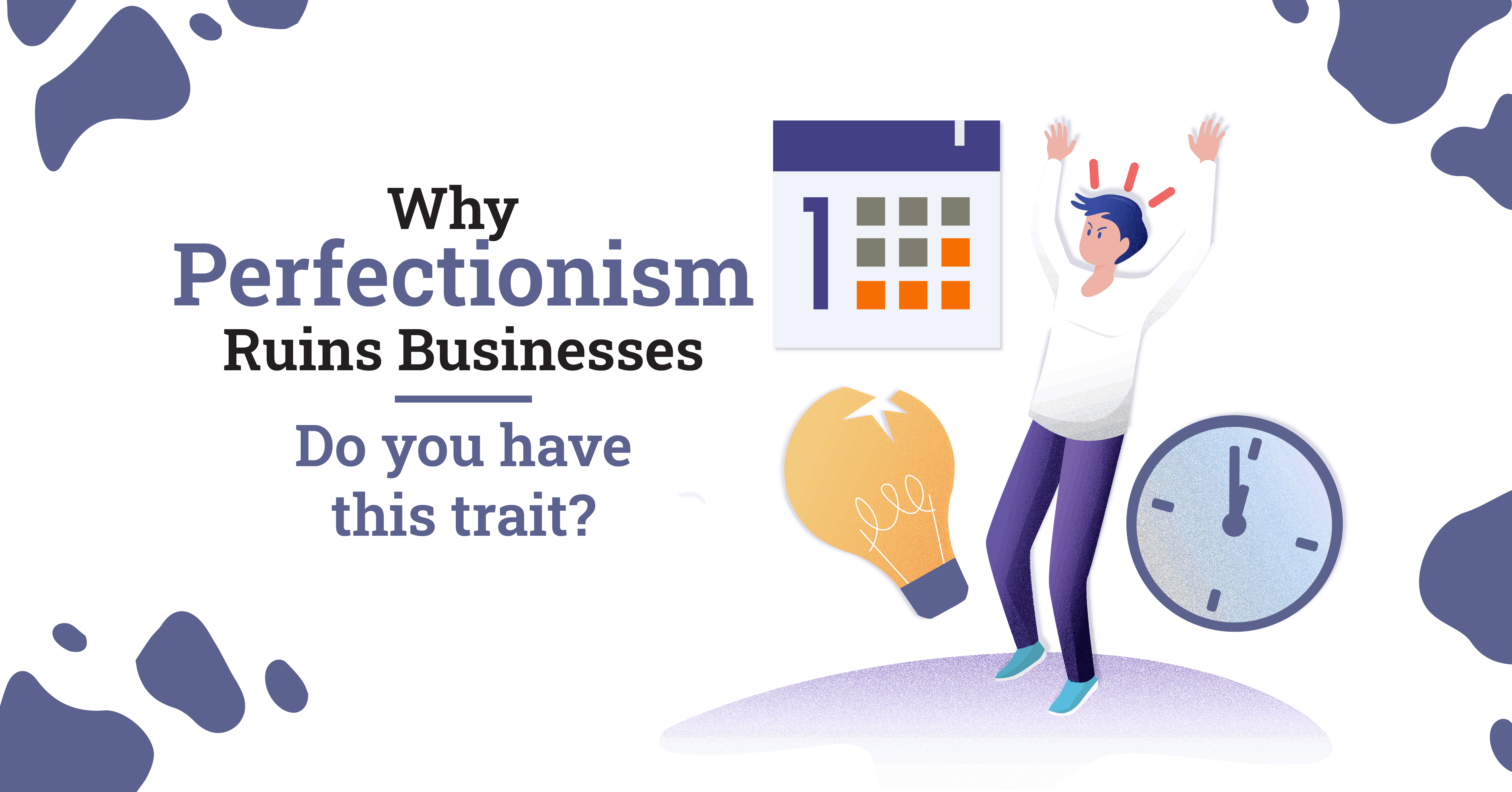Can you tell me why perfectionism ruins businesses? Are you doing it to your brand?
From 2018 to 2019, more than 350,000 new and emerging businesses have registered according to the Australian Bureau of Statistics. This is a 2.7% growth in the number of businesses in Australia. Unfortunately, simultaneous with the influx of new entrepreneurs is the exodus of other businesses. During that same period, more than 290,000 companies have exited the market, accounting for around 12.7% exit rate.
There can be many reasons why a company goes out of business, but these reasons start as small bad practices that usually go unnoticed by the entrepreneurs. These small bad practices aggregate into larger mistakes that eventually cause a huge crash. And one of these bad practices that should be avoided is perfectionism.

How businesses are trying to be ‘perfect’
Entrepreneurs are concerned with the overall performance of their business, so they must comb through and analyze every detail possible. Doing this prevents detrimental errors from happening and also ensures the smooth running of the business.
Result-oriented over process-oriented
Perfectionism ruins businesses and prevents entrepreneurs from having a process-oriented mindset. Instead, it compels them to adopt a results-oriented approach that focuses on the outcomes which are measurable or quantifiable like profit and revenue.
With a results-oriented attitude, entrepreneurs become disheartened easily even on the face of small disappointments like unmet quotas or missed deadlines. This will hamper their ability to make prudent decisions that benefit the business as a whole.
Set excessively high standards
While businesses should set their bars higher, there’s a fine line between difficult and impossible. For example, providing service for a 500-word article within 12 hours – will your writers ever feel burned out? Or, how about producing cupcakes more than your employees and resources can go?
Excessively high standards can lower employee morale, deplete resources, and deject your ideals for the business. When setting goals and deadlines or creating products and services, make sure it’s attainable and relevant.
Evaluate work behaviors critically
They’re more critical of their employees’ work behavior and outputs. Sometimes, perfectionist entrepreneurs blamed their employees for bad performance. Likewise, they, themselves, will be a lot more critical of their work performance and often blame themselves if something goes wrong.
They’ll say, “I deserve this failure because I didn’t put too much effort,” or “What if I put 16 hours a day working? I’ll be a lot more successful!” Not only this will be detrimental to their business, but, it’ll ruin their personal life as well.
Believes that their value is on providing perfect service or products
Newsflash, there’s no perfect product or service out there. If there were, you won’t be innovating your company. You’re left complacent with your operations. But, for perfectionist people, their self-worth is driven by the contingency of always doing things perfectly.
It has become their lifestyle, notion, and self-identity. However, little do they know, perfectionism ruins businesses and that this will lead to higher stress, depression, and anxiety.

How perfectionism ruins businesses
However, when this desire for excellence morphs into perfectionism, it becomes an unhealthy attitude for an entrepreneur to possess. Perfectionism ruins businesses and results in several pitfalls that, when left unchecked, may ruin an entrepreneur.
Poor employee relationship
A business does not thrive with just the entrepreneur. The employees also play an integral role in making sure that the business is working just as planned. That is why the owners should always make sure that their relationship with the employees is all good.
Being a perfectionist gets in the way of an effective rapport between the employer and the employees. Bosses who are nitpicky tend to harshly criticize even the smallest errors or mishaps done by his workers instead of telling them how to do something properly. Of course, that would hurt the feelings of the employees, causing them to harbor remorse towards their boss, and affect their performance as a consequence.
Fear of the unknown
Venturing into a business involves taking big risks, and even bigger risks should be gone through if the entrepreneur wants the business to grow and expand. This huge appetite for risk is one of the secrets behind the success of multi-billion dollar businessmen like Elon Musk and Jeff Bezos.
However, perfectionism ruins businesses and causes entrepreneurs to become risk-averse, shielding him from possible opportunities that can help their company grow. A perfectionist entrepreneur is content with the status quo, foregoing growth opportunities due to their fear of the unknown.
Lost sense of fulfillment
Almost all big companies start as passion projects. Rarely does an entrepreneur put up a business that he or she is not passionate about. This love for what they started fuels their desire to keep their business going, so they tend to give their heart in everything they do. Sadly, this passion is killed by perfectionism.
Once an entrepreneur starts to look at his business solely as a job and not as a passion, his creativity and desire for continuous improvement die. He will no longer be motivated, and eventually, lose his sense of fulfillment in his business.
Conclusion
Businesses have its fair share of ups and downs. There may be periods of drought wherein transactions are scarce, and there are also times of unparalleled abundance. Regardless of the situation, an enterprise should keep on working according to its standard operation.





